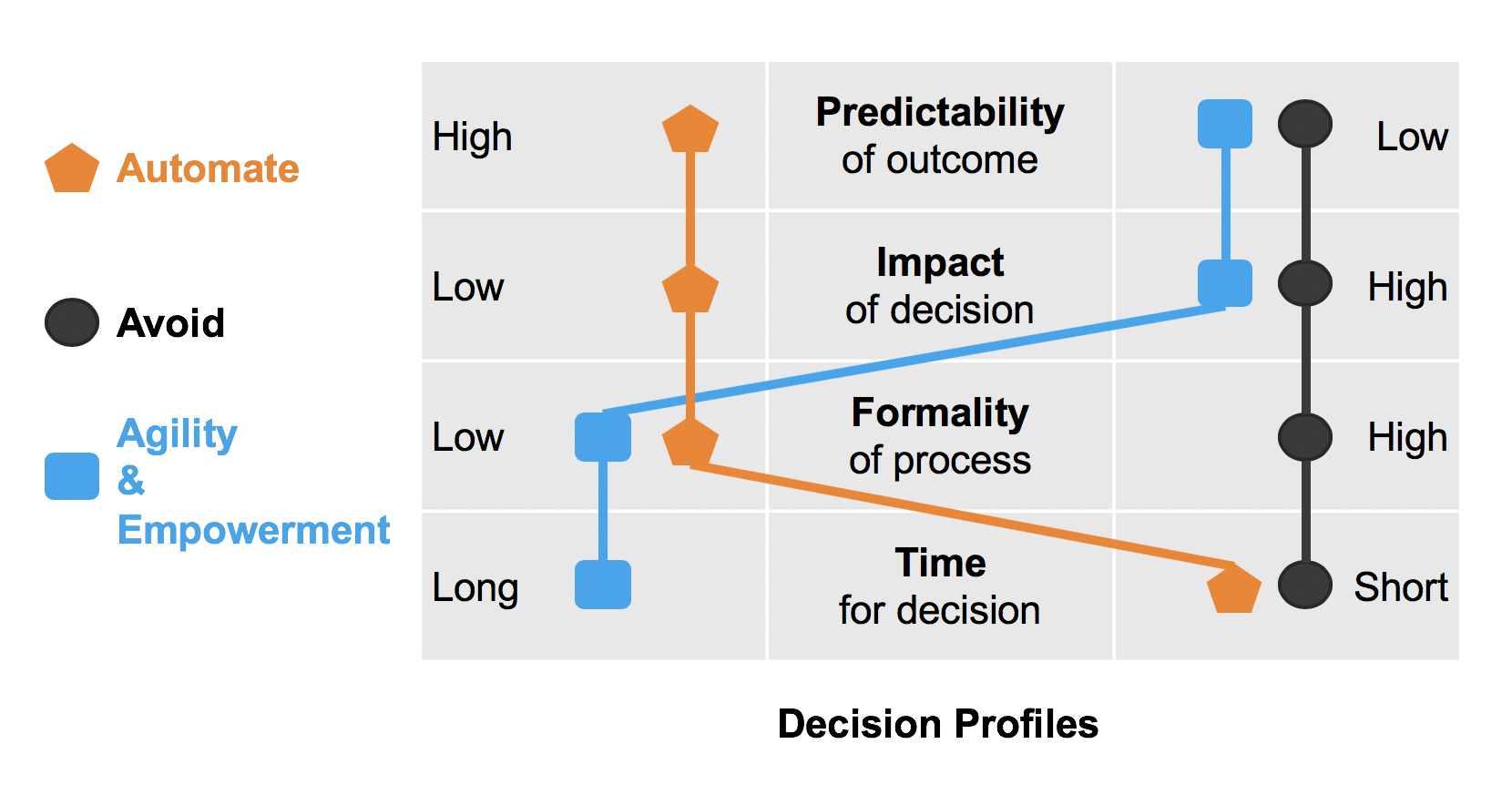Are you aware of Decision Profiles?
“Life is a sum of all your choices,” said the French thinker, Albert Camus. This also rings true for any organization where many decisions are made and their cumulative outcomes over time define the success of that organization.
Paying attention to the way decisions are made is important, and classifying decision types is a good starting point to recognize areas for improvement and policy setting.
A useful decision classification scheme could be based on scoring the factors: predictability, impact, formality, and time. This classification helps in drawing different decision profiles.
Classifying decisions by factors
- The predictability of a decision outcome says something about the environment in which the decision is made. A stable, deterministic environment where cause and effect are well known would give a high predictability score. An environment that is complex, volatile, or chaotic and where it is difficult to make accurate forecasts will result in a low score.
- The impact of a decision ranges from minor decisions such as “I decide for coffee instead of tea” to major ones impacting “life or death.” The impact of a decision can be measured in monetary value, but it is as important to consider how many people will be affected by the decision, or how many people will have to commit to make it happen.
- Understanding the formality of the decision-making process is important. Somebody has to take responsibility for the decision, and a good process helps to assign this responsibility to the right people in the organization. A very formal decision-making process is for example used in a shareholder meeting, whereas informal decision-making could be practiced by an authorized development team, with a “let’s just do it” spirit.
- The time available to decide can range from split-seconds – for example when in the control room of a nuclear power plant where a failure has been detected – to the long-term kind, that tends to turn decision-making into philosophical pondering.
Identifying a decision profile based on these 4 factors helps you to set strategies, illustrated with the following examples:

Improve your decisions by recognizing decision profiles
A decision profile with low predictability, high potential impact, high level of formality, and with limited decision time available is the kind of decision you do not want to have to take in in the first place. You want to set policies to prevent this from happening, because this is the kind where the “Hippo” (the highest-paid person’s opinion) dominates.
Another decision profile with low predictability, high potential impact, but low levels of formality, and sufficient time available is a good candidate for an agile, experimental type of decision-making. This could be where a Dev-Ops team functions well; being empowered to make decisions based on the outcomes of incremental changes.
As a final example, the decision profile with high predictability, low impact, low level of formality and limited time available is clearly an area where it is safe to start using algorithms to do the decision-making for you. High predictability combined with high volume decision-making means that Machine Learning is feasible.
Exploring the different kinds of decision profiles in your organization can help you to find ways to improve or even automate your decision-making processes.
About the author:
Menno Huijben is a Senior Executive at Sofigate and a concept owner of Business Technology Transformations and Data Leadership.
Menno is interested in the realm of decision-making in business, especially where data-driven meets intuition and experience. His motto is ” Don’t forget the Human Factor “


